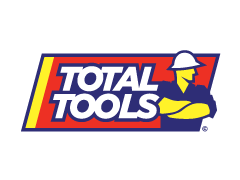Experiments provide insight where gut-instincts fall short. Running an experiment at work helps us understand the effect of specific factors on a process, customer experience, design aspect, or piece of content by trying various ideas to see if they work.
The purpose of running these experiments at work is to learn through discovery. When the goal of an experiment is learning, no matter the outcome there is no real failure because you have acquired data and therefore can glean insights. These insights must then be used to inform decisions going forward, especially if the experiment did not turn out the way you expected it to.
For example, we consistently test various pieces of the touch-points throughout our customer’s experiences. As the Movember Foundation runs annual moustache growing fundraising campaigns, we don’t have the luxury of continuous contact with our most loyal customers. In the most recent campaign, we executed a randomised controlled trial with some of our most valuable and loyal supporters. In this trial, we came away with the understanding that a simple and personalised thank you and gift of appreciation went a long way in terms of continued support.
When experiments become a constant part of your work (and hopefully your life), you will become more willing to take small calculated risks and to acknowledge failure, which will further your own learning and development. Even the act of taking the risk itself can sometimes be thought of as a win due to the risk averse nature of most people and most organisations.
Performing focused and mindful experiments will improve many aspects of your work, most likely through small, iterative steps. Constantly iterating through experimentation is a form of innovation itself as you are making changes to something established. This innovation only occurs as long as you stay cognisant and close to the overall vision, and diligently apply the learnings of the experiments. You just happen to be innovating often in small but meaningful ways instead of through a wholesale, grandiose change.
Using a scientific approach in testing an idea keeps creativity in the process and will actually let more of your ideas get off the whiteboard to see the live environment. A great thing about performing experiments in your job is that you never fully know what will and what won’t work until you see how your customers react to it. You can find out things about your processes, your customers and yourself with measurable and timely results that are rigorously analysed.
As the majority of the Movember Foundation’s donations come through our website, we have the ability to quickly implement and analyse A/B and multivariate tests. In one test we performed last year, we tested the images and copy at the end of our donation funnel. Although we didn’t get see significant outcomes in terms of winning versions, the key learning for us is that during that final stage of the donation process people weren’t swayed positively by images or copy but they could have been negatively affected. Basically, we could do more harm than good at that point so it’s best to keep the customer focused on the task at hand.
Your job will become more interesting and your learning will improve if measured and mindful experimentation is conducted on a regular basis. Discovering things about yourself, how you work and how your customers perceive your work will become apparent. You will become less risk averse and creativity will start to flow out into your work as you will see more things as a learning opportunity rather than trying to mitigate failure.
Experimenting in your job will provide you, your boss and your company with many learning experience that will improve your work and will provide incredibly useful customer feedback.
Trevor Flory
Insights Manager, Movember Foundation

4 May 2016
Find out how innovation is at the heart of Movember.
The importance of Mo experimentation in your job
3 MIN READ

.jpg)





